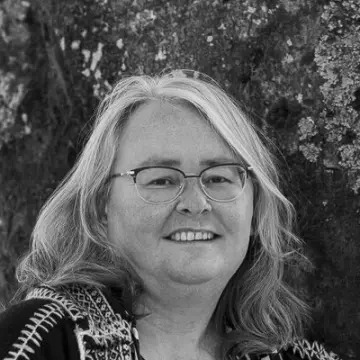We, the
Sex-Affective and Gender Diversity Archives and Archivists Working Group
(ICA-SAGDAA-WG) of the International Council on Archives (ICA), wish to submit
the following statement, the purpose of which is to promote the recognition,
protection, and dissemination of archives relating to Sex-Affective and Gender
Diversity (SAGD) and to showcase and show due appreciation for the
contributions of people from these communities to archiving across the world.
PURPOSE
The
intention of this statement is to promote the recognition, preservation and
dissemination of archives relating to Sex-Affective and Gender Diversity (SAGD)
worldwide, and to recognize the contributions made by members of these
communities in creating inclusive and representative archival memories.
This
initiative is rooted in the principle of the diversity of archives in recording
every area if human activity as established in the Universal Declaration on Archives
(UDA) of the Ica.
What is
Sex-Affective and Gender Diversity (SAGD)?
We use the
term Sex-Affective and Gender Diversity to refer to those communities,
individuals and organizations that identify with Sex-Affective and Gender
Identities, expressions and practices that do not correspond to cis-heteronormative
standards.
The
description may be assimilated with the widely used acronym LGBTQI+, in which:
• L
stands for lesbian women
• G for gay men
• B for bisexuals
• T for transgender individuals (those who do not identify with the sex
assigned at birth)
• Q for queer people(those who challenge norms that reinforce inequality
based on categories such as gender, sexual orientation, social class, or race)
• I for intersex people
• and + sign represents all other non-cis-heteronormative expressions or
identities, such as asexual,non-binary, two-spirit, gender-fluid, and other
identities.
PRINCIPLES
As stated
in the Adelaide / Tandanya Declaration in 2019, the International Council on
Archives (ICA) recognizes its responsibility to re-imagine the meaning of
archives as an engaging model of social memory, a process that should culminate
in a new model of public archives as an ethical space of encounter, respect, negotiation
and collaboration.
Against
this backdrop, this Declaration acknowledges the long history of oppression and
stigmatization that LGBTQI+ people have suffered, as reflected in the archives
through two types of practice:
The traditional representation of this group in
documents preserved in public archives, which is biased, negative,
criminalizing, stigmatizing, humiliating, and pathologizing.
The symbolic annotation of LGBTQI+ individuals through
the cognitive and representational erasure of their identities in public
records
This is why
we assert that LGBTQI+ people have the
right to be recognized as such in archival description and representation systems,
through their identification and inclusion in ontologies and vocabularies used
to describe documents related to LGBTQI+ community. LGBTQI+ individuals and organizations
should participate as members of the archival profession and co-authors in the
archival description of such documents.
Public archive
acquisition programs bear responsibility for ensuring that historical records
are kept of the general and systemic oppression suffered by the LGBTQI+
community as result of practices rooted in homophobia and discrimination, which
have resulted in the creation of archives antagonistic to this community.
Public archives must incorporate documentation related to LGBTQI+ individuals
and organizations themselves.
This last
point is particularly important given the lack of documentation on this topic.
LGBTQI+ people represent between 10% and 20% of the global population, but this
figure could be even higher. Estimating the size of this community worldwide is
a difficult task, as in most countries, discrimination has led people to
conceal their sexual orientation and gender identity. This explains the general
absence of documentation produced by LGBTQI+ individuals, as such documents
could be used against them by law enforcement officers, the courts, or medical
professionals.
Therefore,
the recovery, preservation and dissemination of archival materials produced by
LGBTQI+ individuals and organizations by public archives is a fundamental step towards
the normalization of this community within the archival sector, especially
considering the high risk of loss and destruction of this type of
documentation.
This
protection also extends to ensuring that LGBTQI+ individuals and organizations
can interact with public archives in normal fashion, whether as users, donors
or staff members.
This
Declaration explicitly recognizes that vital role played by LGBTQI+ archives,
which are independently organized by members of the LGBTQI+ community and
operate outside traditional institutional archives. These latter have,
historically and until recently, been neglectful, hostile and homophobic in
their treatment of documents produced by LGBTQI+ individuals. Without the work
of these social and community-based LGBTQI+-archives much of the history and
personal stories of LGBTQI+ people would remain undocumented.
ACTIONS
Consideration
and inclusion of the specific characteristics of LGBTQI+ individuals and
communities in archival descriptions.
Preservation
and transmission of knowledge about the traditions and history of LGBTQI+ individuals
and communities via oral history projects.
Research
into the principles and methodologies used by LGBTQI+ communities for the creation,
sharing, use and protection of their cultural expressions.
Development
of guidelines and protocols that facilitate the systematic retrieval and
archival processing of documents, collections, and data related to LGBTQI+
individuals and organizations worldwide.
Creation and
maintenance of a digital platform for communication and resource sharing aimed
at LGBTQI+ archives and individuals interested in or related to archives professionals,
users and the general public.
Awareness within
the archival community about the importance of the challenges, responsibilities
and opportunities inherent in managing LGBTQI+ records and collections, as well
as the high risk of loss and destruction of these materials due to these
subject matter and the long history of marginalization and stigmatization faced
by the LGBTQI+ community worldwide.
Promotion
of communication and collaboration between LGBTQI+ community and its social archives,
on the one hand and institutional archives on the other, through interdisciplinary
dialogue with other groups working on issues of gender, women’s rights, social
class, migrants, racialized people, people with disabilities, indigenous
people, children, older adults, and any other group that has been historically
marginalized by institutional archives and the archival profession.



